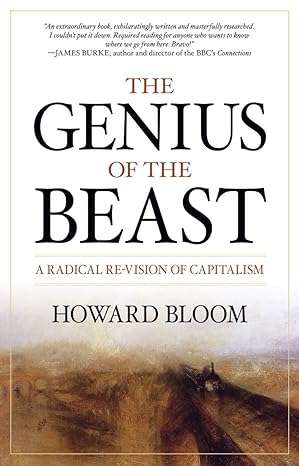
Why are Americans uneasy? A year ago, in the spring of 2024, The Chapman University Survey of American Fears, indicated that over 50% of Americans were worried about a third world war, corrupt government officials, and terrorism. Since then, things have gotten worse.
Why? Because the earth seems to be shaking under our feet. And things we once took for granted, things we relied on, are being kicked away.
On February 28th, Donald Trump’s televised humiliation of Ukraine’s President Volodymyr Zelensky convinced our allies that they could not depend on us. So our allies in Asia and our allies in Europe have begun to turn their backs on us.
Japan is actively pursuing an Asian NATO, recruiting other Asian nations and relying on a security partnership it has signed with, not us, but the European Union. Meanwhile, the Europeans realize they can’t count on us to come to their aid, either. So they are putting together a European military alliance of which we would not be a part.
But this is just foreign policy stuff, right? And foreign policy doesn’t matter to your everyday life and mine. That’s not true.
As you know, we have a new peer competitor, China. A peer competitor very unlike the Soviet Union we faced in the Cold War. China has become the workshop of the world. We have become dependent on Chinese goods
So what happens when our ability to buy cheap iPhones and iPads slips away? What happens when China becomes the leader in biotechnology, medical research, and artificial intelligence?
Nine years ago, China overtook us in the number of scientific papers it published. This month they have claimed to overtake us in artificial intelligence. And China is working hard to lead the world in the next big thing, intelligent robots. Meanwhile, we are hacking our scientific agencies to pieces.
What does any of this have to do with your life and mine? Why does it make us insecure even when we don’t realize it? Until the last few months, we were the one stable nation others could count on. So foreigners parked their money in America. Including the Chinese, who loaned us money by buying close to a trillion dollars in US Treasury securities.
Now we are the most unstable of the superpowers. And China is advertising itself as the only rock-steady superpower on the planet. What will happen when all that money that was once parked here flees our instability and goes to China?
We saw a bit of what will happen in early March. In just nine days, the US stock market lost four trillion dollars in value. That’s the equivalent the entire economic output for a year of Germany.
Now there’s increasing talk of the possibility of recession, or, worse, a depression. Which would mean that many of us would lose our jobs.
And the Federal government, which would at least help give us a weekly unemployment check, is being ripped apart. The irony is that the deepest red states, the most reliably Republican states, are the most dependent on federal support. Republican states are today’s welfare queens.
What’s more, many believe that our constitutional democracy and our balance of powers is being ripped to shreds. Topping even that is the looming possibility that the government could shut down on March 14th.
So why are we uneasy? We’ve given up our position as the leading nation on earth. And as Joni Mitchell said, “you don’t know what you got ‘til it’s gone.”
References:
https://asia.nikkei.com/Opinion/Can-Japan-really-trust-America
https://asia.nikkei.com/Opinion/Zelenskyy-Trump-showdown-shows-Asian-allies-can-t-fully-count-on-U.S
https://www.ft.com/content/73aef243-0518-42b5-b732-2e64ace3994c
https://www.chapman.edu/wilkinson/research-centers/babbie-center/survey-american-fears.aspx
https://www.axios.com/2025/03/11/employee-confidence-labor-jobs-doge
https://nypost.com/2025/03/11/lifestyle/quarter-of-americans-experience-burnout-by-30/
https://www.axios.com/2025/01/24/musk-doge-trump-billionaires-disapprove-poll
https://www.investopedia.com/inflation-worries-hit-americans-confidence-about-retirement-11695105
https://www.deseret.com/u-s-world/2025/03/11/most-least-federally-dependant-states/
https://wallethub.com/edu/states-most-least-dependent-on-the-federal-government/2700
______
 Howard Bloom of the Howard Bloom Institute has been called the Einstein, Newton, Darwin, and Freud of the 21st century by Britain’s Channel 4 TV.
Howard Bloom of the Howard Bloom Institute has been called the Einstein, Newton, Darwin, and Freud of the 21st century by Britain’s Channel 4 TV.
Bloom’s next book, coming out in spring, 2025, is The Case of the Sexual Cosmos: Everything You Know About Nature is Wrong.
Says Harvard’s Ellen Langer of The Case of the Sexual Cosmos, Bloom “argues that we are not savaging the earth as some would have it, but instead are growing the cosmos.
A fascinating read.” One of Bloom’s eight previous books–Global Brain—was the subject of a symposium thrown by the Office of the Secretary of Defense including representatives from the State Department, the Energy Department, DARPA, IBM, and MIT. Bloom’s work has been published in scientific journals, and in The Washington Post, The Wall Street Journal, Wired, Psychology Today, and the Scientific American.
Says Joseph Chilton Pearce, author of Evolution’s End and The Crack in the Cosmic Egg, “I have finished Howard Bloom’s [first two] books, The Lucifer Principle and Global Brain, in that order, and am seriously awed, near overwhelmed by the magnitude of what he has done. I never expected to see, in any form, from any sector, such an accomplishment. I doubt there is a stronger intellect than Bloom’s on the planet.”
For more, see http://howardbloom.net
